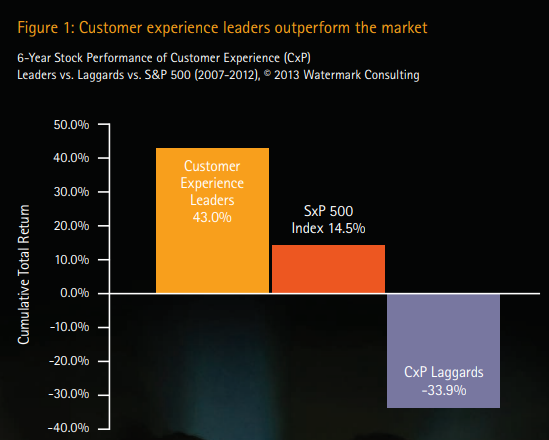Digital transformation is re-imagining the human experience. It is remaking how people live, work, play and connect. Everything is being rethought, simplified and improved—even things people have taken for granted throughout their lives. Most companies recognize that they cannot turn a blind eye to such a powerful force shaping human behavior. What worked yesterday to attract, engage and retain customers may be fast becoming obsolete. So how can companies develop a customer-relevant digital business when change is the only constant?
Business success today requires a customer-focused digital transformation. It starts with prioritizing a superior and relevant customer experience and aligning the organization, processes and technology to power it.
Every digital transformation journey will be different and dynamic. Because captivating customers means constantly and swiftly adapting to their changing needs. Leading companies are already re-imagining customer experiences with a strong focus on digital. By giving customers rich experiences in their own languages, Marriott is reaching $7 billion in annual sales online. While a multichannel commerce solution is enabling Nespresso to offer a more personalized and complete customer experience across 41 countries.
Such efforts to become a customer-relevant digitally powered business are no longer options, they are musts. And for many companies, their ability to embrace digital is quickly becoming a matter of survival. The time to act is now.
A view of the market shows just how important the customer relevance imperative is for business success in a digital world:
Brand recognition
For the first time on Interbrand’s top 100 global brand ranking, Coca-Cola was the number one global brand. And Apple and Google claiming the two top spots. In fact, four of the top five global brands are helping to drive or shape the digital ecosystem.
Stock performance
Watermark Consulting has found that companies with a strong focus on customer experience outperform the market. Six years of stock performance reveal that these companies have a cumulative total return of 43 percent compared to 14.5 percent for the S&P Index. Companies without a strong focus on customer experience lag well behind the market with -33.9 percent return (see Figure 1).

Customer loyalty
Forrester research shows a correlation between customer experience excellence and revenue gains tied to customer loyalty. It could be through repeat purchases, lower switching rates or increased word of mouth. The research revealed potential loyalty-related revenue boosts of $3 billion for wireless service providers, $2 billion for airlines and $1 billion for hotels.
Shaking the status quo
Business models that historically made many companies successful are becoming the bane of their existence. Former strengths like size, structure and culture are fast becoming liabilities as established companies struggle for agility in the digital world. Once the gold standard for information, Encyclopedia Britannica announced an end to printed editions in 2012 after 244 years. In 2010, U.S. Internet ad revenue surpassed newspaper ad revenue 305 years after the first newspaper ad appeared.
Many companies are falling behind new entrants that are setting the pace of change and inherently structured to reap the benefits of digital success.
The good news is that all is not lost. There are significant opportunities for companies that embrace digital realities and use them to drive customer relevancy.
For most companies, digital transformation will require reorientation around an “outside-in” lens to deliver enduring customer relevance at scale. Companies should first consider the visible part of their business—everything that customers experience directly. With a clear picture of the customer journey, companies can align the parts of the business that customers do not see. That refers to the internal operations and technology infrastructure. Because these elements make or break the customer experience.
1. Delight Your Customers
Companies must understand customers to design delightful omnichannel experiences and services. Customer systems should be relevant, simple and elegant. This is just what digital pioneer Amazon has always prided itself on. Amazon wins with customers because it makes it easy for them to get exactly what they want hassle free, while continually raising the bar on the customer experience.
2. Re-Orient your business
Companies must tune brand management and the operating model toward customer-centricity and agility while infusing analytics into the core culture. Business systems should be effective, efficient and deliver return on investment. BMW recognized this need to align its internal business operations around its customers, implementing an eKanban system digital solution together with Lear Corp., a car seat supplier, to streamline the supply chain. Performance should be monitored and measured, with changes made as necessary.
3. Flex your platform
Optimizing the marketing, content and commerce technology infrastructure powers customer experiences and business operations. Technology systems should be robust, scalable and capable of being deployed quickly. A leading global consumer goods company is extending its digital transformation with the creation of a comprehensive digital dashboard architecture. This flexible technology solution will store data from multiple digital sources and provide a strategic business intelligence platform for analysis, insights and measurement of global digital marketing initiatives.
Making a complete digital transformation means aligning and executing these three elements together, even if maturity among them varies. This could mean accelerating the effectiveness and efficiency of the current business, driving growth. Or it can be differentiating the business by launching new products or services that delight customers. The ultimate reward is breakthrough business performance. This is just what Swedish mobile operator 3 did when it launched the My3 app. Guided by customer insight, the company transformed the monthly bill from an annoyance to a powerful customer engagement tool. The innovative smartphone app gives users access to the information they want while reducing customer service support calls.
Putting it all into perspective
- Who are the future customers?
- Is the Business delighting customers (anywhere and every time?)
- Who are the future competitors and partners?
- What will the business become?
Digital transformation is not for the faint-hearted. It pushes companies to take stock of who they are—and what they could become. That alone is hard work. But amid the new customers, new competitors, new partners, and new technologies, success cannot be left to serendipity.
The business imperative for all is to achieve enduring customer relevance at scale through a customer-focused digital transformation. Whether companies perceive digital as a threat, a challenge or an opportunity, those that ignore it do so at their own peril.
Moving forward, companies need to pursue digital transformation in order to survive. It is often complex and requires thoughtful investment. Nonetheless, the vision must be to continually renew the strategy, culture, operating model and infrastructure to flex the business on an ongoing basis. Because anticipating customers’ needs and exceeding their expectations is essential in a customer-relevant digital world.
An extended version of this article first appeared in the https://www.accenture.com.sg.
Follow Tecso on LinkedIn and Facebook
References:
- https://www.accenture.com/sg-en/~/media/Accenture/Conversion-Assets/DotCom/Documents/Global/PDF/Technology_7/Accenture-Interactive-Digital-Transformation.pdf
- Accenture, “Marriott International: Web Content Optimization,” 2012.
- Accenture, “Accenture and hybris Team to Implement Multichannel Commerce Solutions for Global Enterprises,” August 5, 2013.
- Interbrand, “Best Global Brands 2013,” accessed December 3, 2013.
- Jon Picoult, Watermark Consulting, “The Watermark Consulting 2013 Customer Experience ROI Study,” April 2, 2013, accessed February 18, 2014.
- Maxi Schmidt-Subramanian, Forrester Research, “The Business Impact of Customer Experience, 2013,” June 10, 2013.

